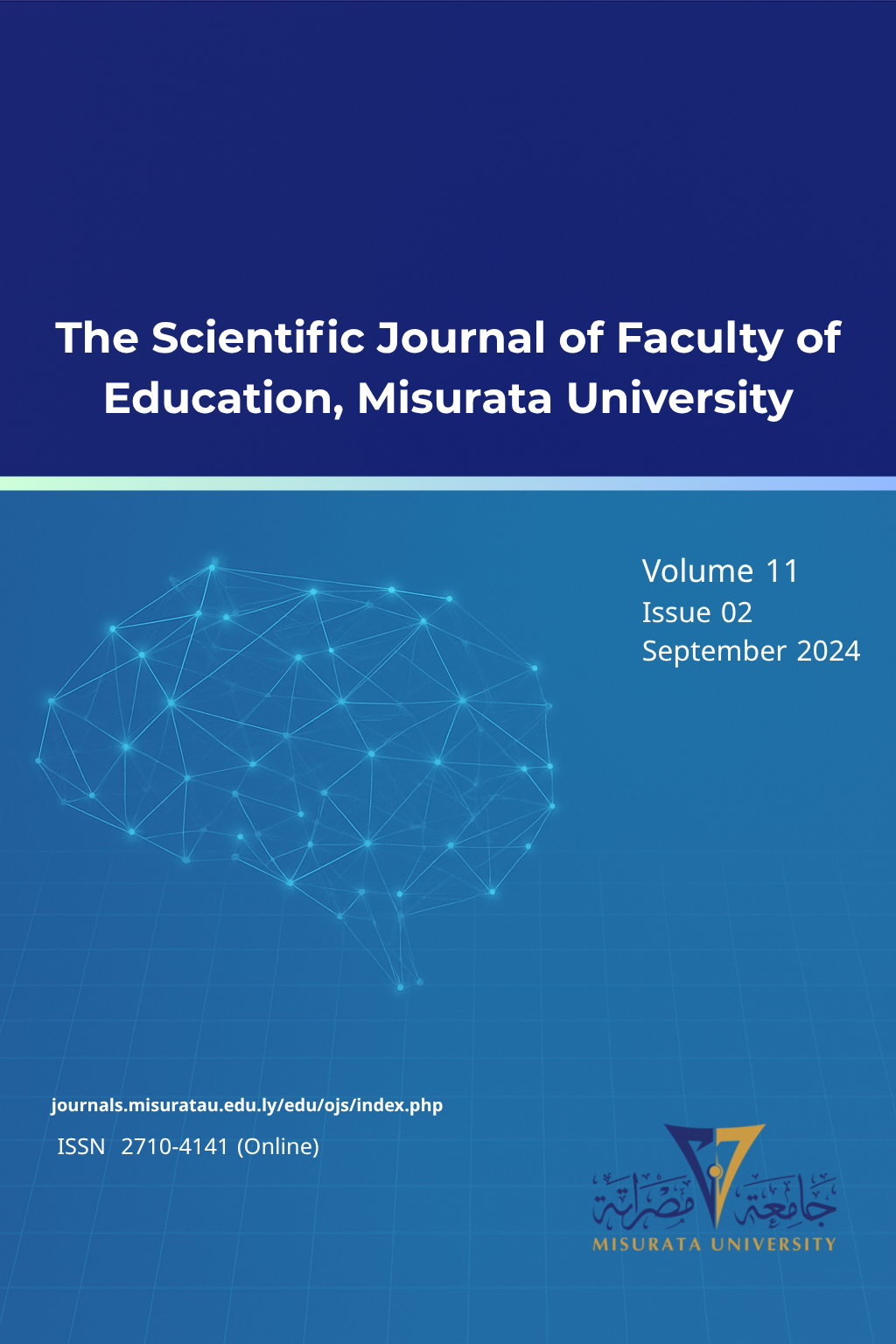Academic problems facing a sample of faculty members at the College of Education, Misurata University
Keywords:
academic problems, scientific promotion, scientific publishingAbstract
The aim of the research is to identify the academic problems facing faculty
members at the College of Education, Misurata University, and to identify
statistically significant differences according to the variable (gender,
academic qualification). The researcher used the descriptive analytical
method, and the questionnaire consisted of four axes (problems related to the
faculty member - problems related to the research). Scientific - problems
related to students - problems related to scientific promotion) distributed over
(28) items, and the research sample consisted of (75) faculty members in the
College of Education, Misurata University, and the reliability coefficient
reached Cronbach’s alpha (0.79) and the results were as follows
There are problems facing faculty members in the College of Education to a
degree (large) with a mean of (3.84) and a standard deviation of (0.99), and
the most severe problems related to students are to a degree (very large) with
a mean of (4.24) and a standard deviation of (0.82). In second place were
problems related to scientific publishing. It is (large) with an arithmetic mean
(4.14) and a standard deviation (1.05), followed respectively by problems
related to academic promotion, which came with an arithmetic mean (3.82)
and a standard deviation (1.05). The focus of problems related to faculty
members came in last place with an arithmetic mean (3.15) and a deviation.
Standard (1.17). The results also showed that there were statistically
significant differences at the significance level (0.05).
According to the gender variable in academic problems in general, the
differences were in favor of females, and there were also differences in the
two axes of problems related to scientific publishing and problems related to
faculty members, and in favor of females, while the results showed that there
were no differences attributed to the gender variable in the two axes of
problems related to students and problems of academic promotion. The
results also found that there were no statistically significant differences at the
level of significance (0.05) according to the academic qualification variab in all axes except the axis of problems related to scientific publishing, and the differences were in favor of the master’s degree.










